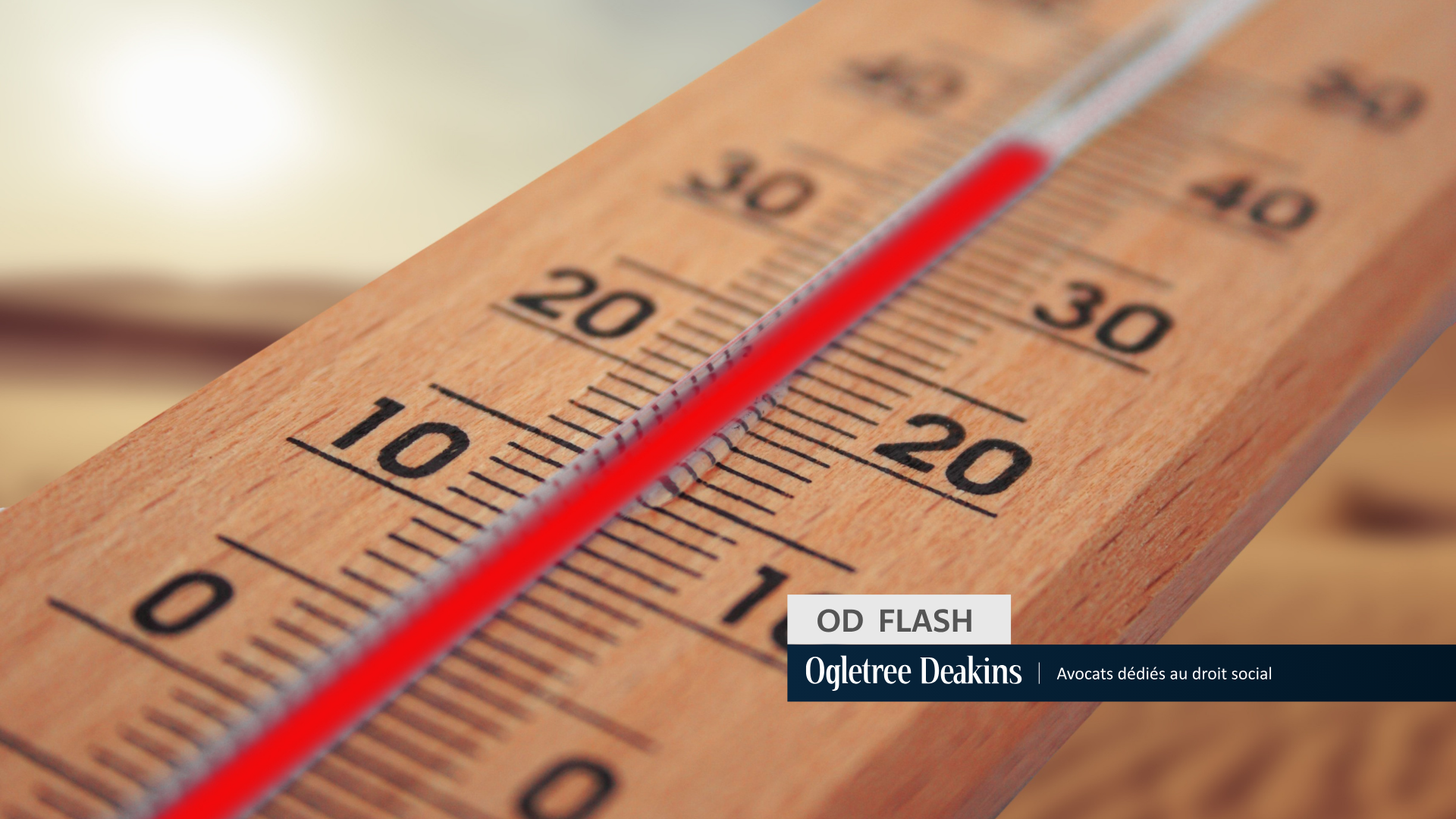By revising a number of provisions of the Labor Code, Decree No. 2025-482 of May 27, 2025, issued by the Council of State strengthens the obligations of employers and self-employed workers with regard to the prevention of risks related to thermal environments, and in particular to high temperatures.
In particular, the decree:
· Rewrites Article R. 4223-13 of the Labor Code, which stipulates that “enclosed premises used for work shall be heated during the cold season,” to stipulate more generally an obligation to manage thermal environments through heating or air conditioning: these premises must “at all times of the year, [be] maintained at a temperature appropriate to the work done and the environment in which it is carried out”. Regarding outdoor workstations, the decree adds in particular to Article R. 4225-1 of the Labor Code that they must systematically be “protected against the effects of atmospheric conditions” and not only “to the extent possible” as previously provided.
· States that the procedures for using personal protective equipment, of which the Social and Economic Council is informed and consulted, must now consider atmospheric conditions (Article R. 4323-97 of the Labor Code).
· Requires employers, as part of their obligation to assess and prevent occupational risks, to assess the risks associated with workers’ exposure to intense heat, both outdoors and indoors. The Labor Code provides a list of risk prevention measures to be implemented in the event of intense heat, including adapting work methods and schedules, modifying workstation layout, technical means of reducing solar radiation, increasing the supply of fresh water, providing specific personal protective equipment, and training workers on the measures they can take to protect themselves. These measures must be reinforced and defined in conjunction with the occupational health service for workers who are vulnerable due to their age and/or state of health (Article R. 4463-3 et seq. of the Labor Code).
· Provides that the employer must clearly define the reporting procedures and emergency procedures to be implemented in the event of the appearance of worrying physiological signs, discomfort or distress (Article R. 4463-6 of the Labor Code).
These new provisions will come into force on July 1, 2025. The labor inspectorate has the power to issue formal notices in the event of failure by the employer to comply with these prevention obligations.



